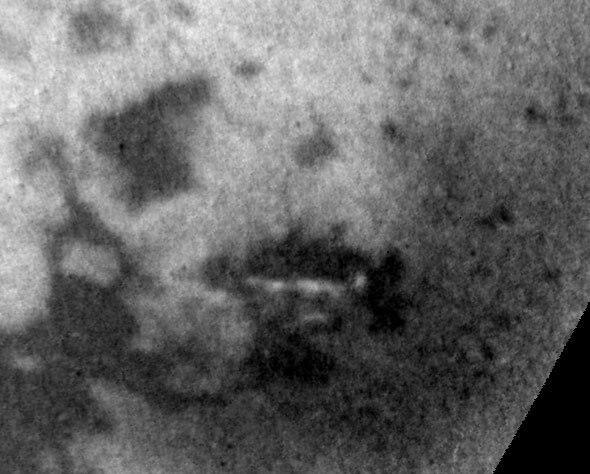Create a free profile to get unlimited access to exclusive videos, sweepstakes, and more!
Titanic Weather

In the Northern Hemisphere it’s summer. That means warm sunshine, gentle breezes, lake water evaporating and forming lovely, puffy clouds …
Oh. Did you think I meant here? No, no, no. I meant Titan!
Titan is Saturn’s largest moon, and it’s actually bigger than the planet Mercury. It has a thick atmosphere of nitrogen, with a surface pressure half again as much as Earth at sea level. It’s cold there, about -180° C (-290° F), cold enough that water ice is hard as rock, and methane is a liquid on the surface.
In fact, methane there is like water here: It can be a liquid or a gas, depending on the local conditions. One of the Cassini mission’s biggest surprises, and totally cool discoveries, is the presence of lakes of liquid methane near the moon’s north pole. Lots of channels line the surface, too, indicating that methane must evaporate from the lakes, condense as clouds, then rain out, running along the channels.
And now, with the onset of northern summer, Cassini has taken images of clouds forming over a lake named Ligeia Mare (Ligeia was one of the mythological sirens), and these images form one of the most amazing animations I’ve seen from the outer solar system:
Wow. The lakes are the dark regions, and the clouds form over the western edge of Ligeia Mare, blowing east (right). The winds are moving at about 12-16 kph (7-10 mph); breezy but not too bad. The wind chill is like minus a bazillion, but if you’re Titanian I’m sure it would feel refreshing.
These clouds have been anticipated by planetary scientists for some time, and have frankly been overdue. In late 2010, a huge storm swept over the equatorial region of Titan, and for some reason cloud formation has been suppressed since then. These clouds may mark the return of normal weather on the ridiculously huge moon.
It’s really odd to think of a moon having weather, especially one well over a billion kilometers from the Sun, where the temperature would nearly liquefy the oxygen out of our own air. But there you go. And it’s not just weather, but really in many ways it’s quite Earth-like. Methane lakes, a methane cycle, lots of organic compounds lying around … it’s no wonder a lot of scientists take the idea of exobiology seriously on Titan. Cassini has sent us a lot of amazing data, and a lot of tantalizing clues. I’d love to send a dedicated probe there, something that could land, move around, taste the local flavors. A few years ago it would’ve been the last place I would’ve thought to look for extant life, but nowadays it’s near the top of everyone’s list.


























